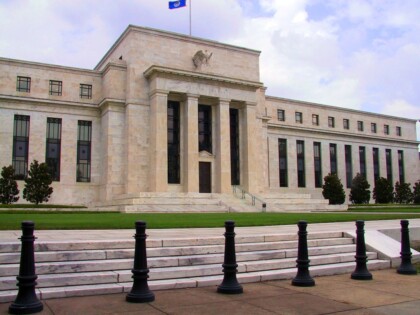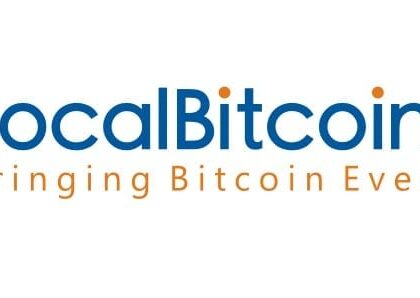
‘State of Bitcoin in Hong Kong’ is a series of interviews with some of the most prominent members of the Bitcoin community in Hong Kong. This set of interviews will provide an insight into the current state of Bitcoin in Hong Kong, its potential applications, and startups innovating to find more uses for Bitcoin in Hong Kong.
This is the first interview of this series, and Leonhard Wesse, President of the Bitcoin Association of Hong Kong, will start by giving us a brief insight on the state of Bitcoin in Hong Kong.
Can you please briefly explain your involvement in Bitcoin?
I bought my first Bitcoin in 2012 with my first salary from my first job. I was pretty excited about it, but didn’t know what to do with it. I tried to find others interested in it, and quickly started to organize meetups and reach out to other bitcoiners in Hong Kong and abroad.
This engagement has now grown into the Bitcoin Association of Hong Kong, to which I serve as president.
I also work for Monetago, a global Bitcoin exchange. I’m trying to bring their services to Hong Kong and from here to Asia.
How did you first learn about bitcoin?
I heard about it first in college, I believe it was 2011 when I was researching Free Banking theories for my economics classes. But I couldn’t even get wallet software to run on my computer, so I gave up.
What was your first reaction when you first read about it?
Free Banking theory is quite complicated, and it requires quite a bit of imagination to believe it would work. Bitcoin was fundamentally different, it solved a couple of old economics problems in a very neat and practical way.
The computer science implications of this invention I only understood much later.
Has bitcoin impacted your lifestyle? If so, how?
I now get paid in Bitcoin, so I am one of those annoying people who go around begging everyone to accept it. Suddenly a lot of everyday purchases become experiments, as well as exchanging bitcoins for cash. But it’s quite fun!
How and why was the Bitcoin Association of Hong Kong formed?
We simply outgrew our small meetups in bars. We needed some coordination and organization, and I was willing to do this. We now serve as a contact point for many of those coming into Hong Kong, such as business travelers and hosts of conferences, but also the media.
What promotions has the Bitcoin Association of Hong Kong done for Bitcoin? Do you believe that they were effective?
Right now we are organizing the “Tuspark Bitcoin Lecture Series”, five weeks of lectures, panels and workshops. I believe it was quite effective, especially since we were able to reach out to people outside of our community. Another example is Hackcoin, a Hackathon we held in May. It was quite small, but great fun and it’s a great showcase for the many ideas and inspirations people have around Bitcoin.
Could you elaborate on what the “Tuspark Bitcoin Lecture Series” is, and where the public could read more about it?
https://www.bitcoinhk.org/2015-tuspark-bitcoin-lecture-series/
Tuspark stands for ‘Tsinghua University Science Park”, it is a company owned by Tsinghua that builds business parks for the technology industry all across the world. They greatly helped with providing us a venue and reaching out to people. We started with a lecture on Bitcoin, then had another workshop on how to download a wallet. We sent everybody some Bitcoins. There was also a talk about Smart Contracts, a panel on Regulation and this Tuesday we will have a panel about Bitcoin Startups.
What are the future plans and aims of the Bitcoin Association of Hong Kong?
Do more of what we already do, and do it better. We want to educate foremost the banks right now, they need to understand that Bitcoin is a useful technology that they should embrace. Eventually the government will also want to legislate on this, we want to be ready for their questions as well.
Hong Kong is one of the only places in the world where a large percentage of the population uses electronic payments for almost all of their transactions (The Octopus Card). Do you believe that Bitcoin could compete with that, in Hong Kong?
Bitcoin cannot compete with the Octopus card. The octopus card is incredibly fast and convenient. But they can very easily compliment each other. I even believe that with Bitcoin the Octopus card can become even more popular and reach into areas it hasn’t reached yet, such as taxis or independently owned stores. Imagine Bitcoin as an easy method to fund and defund Octopus cards and terminals, providing faster liquidity to the stores and easier access.
Have you thought of any practical applications for Bitcoin in Hong Kong?
Online payments are a big problem for companies in Hong Kong. They pay between 4-8% in credit card/paypal fees, and it makes it increasingly difficult for them to compete. Hong Kong is built on trade, always has, and probably will be for quite a while to come. Today if you send a shipment to South Asia or Africa, the shipment will be faster than the corresponding payment. That’s outrageous! Bitcoin will help solve that. But even if Hong Kong’s future were not to lie in trade, then we probably won’t get around reinventing our financial center as a financial technology center, and Bitcoin will be a big part of that.
Why do you think that this service does not exist yet? Would it be a lack of funding, or something similar?
Services like Bitpay and Coinbase which offer payment processing at near zero cost, cannot easily expand into Hong Kong because they cannot find bank accounts here. That’s a real shame, but I’m confident we will eventually overcome this. But even without such services, Hong Kong startups still already embrace Bitcoin, and since the fees are so huge they are willing to go through some hassle and cost to accept Bitcoin and convert it to their currency of choice. But even better, they become more creative and find plenty of use cases for Bitcoin that they wouln’t find if they simply converted to HKD.
Finally, what are your expectations for Bitcoin’s future, regarding its applications and regulation?
Hm, that is really difficult to predict. I’m confident that Bitcoin will be much much bigger than we think it will be, and a lot of the applications and imaginations are still a bit limited to payments. That’s like saying that the internet will be just websites and email. It turned out to be a lot more, and it’s quite possible that Bitcoin will be bigger than the internet, in terms of the value that it brings us.
We have to be careful not to strangle it with regulation, but bad regulation, just like with the internet, will be largely annoying, not actually stopping the spread of free and open information.
Thank you very much for this opportunity to interview you. I’m sure the public would appreciate this insight into the current state of Bitcoin in Hong Kong.
No problem. Nice chatting with you.







